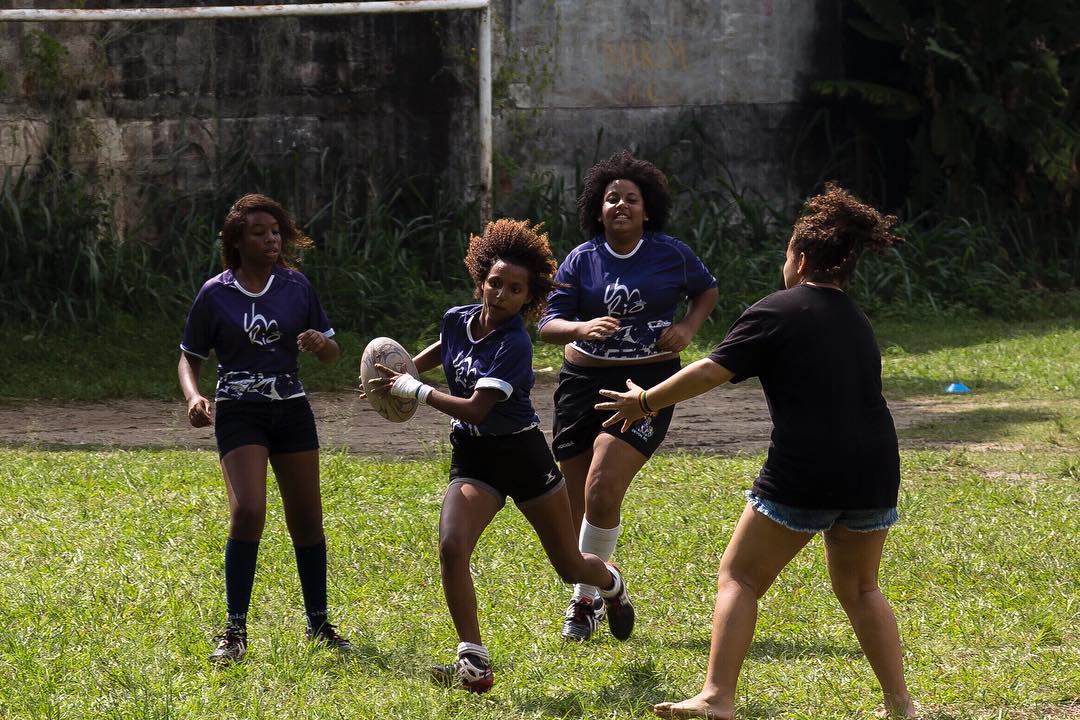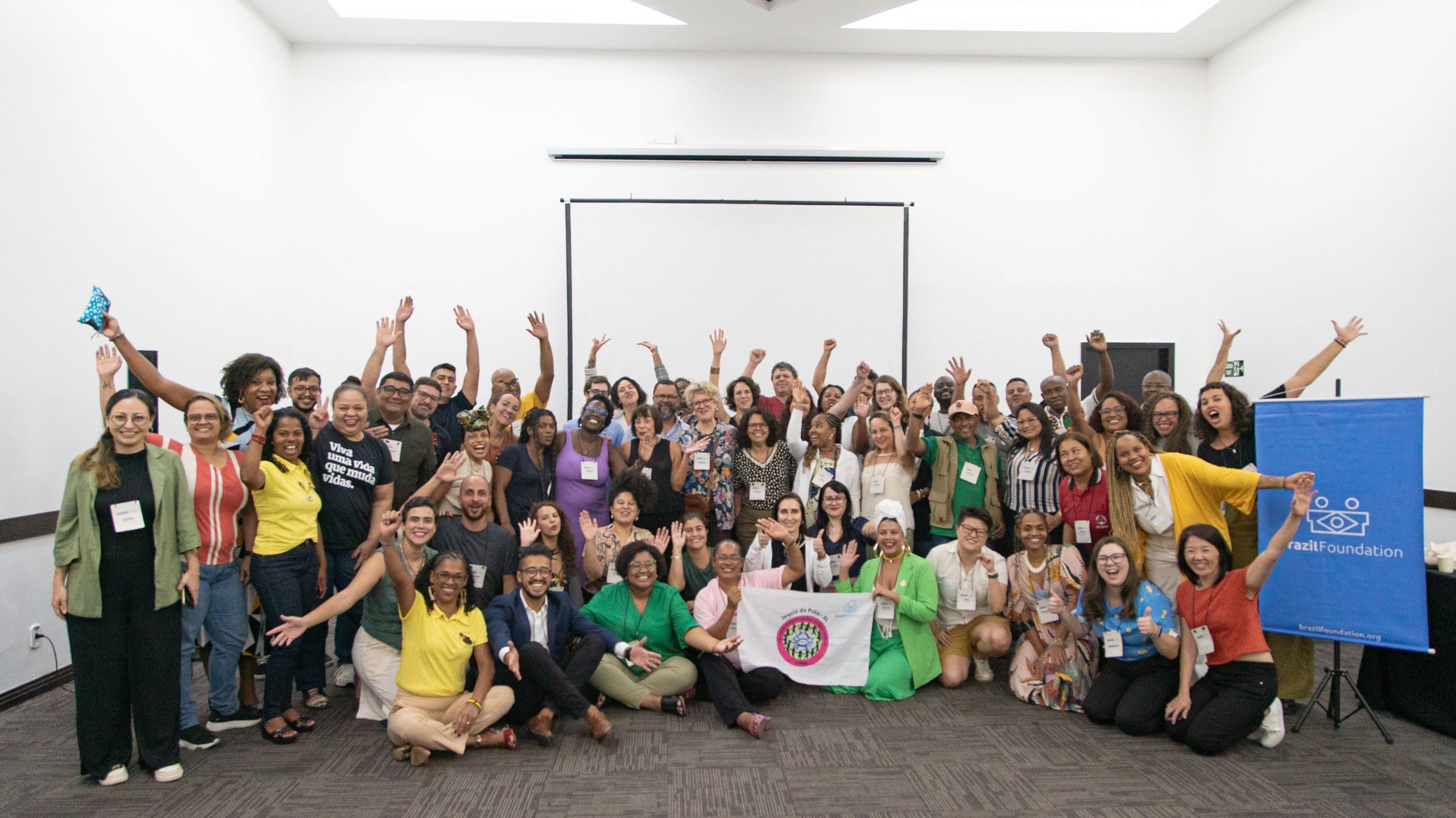The Sport That Opens Doors to a New World
Children and adolescents from São Gonçalo come to UmRio to play rugby and learn to overcome life challenges
By Nuria Saldanha
Brazil is known as the “land of soccer”. But in São Gonçalo, a city in the greater metropolitan Rio de Janeiro region, children and youth are engaged in another sport. Invented in England nearly 200 years ago, rugby encourages curiosity in children from the periphery and is a segway into UmRio’s personal and social development program. UmRio is a 2018 BrazilFoundation grantee, thanks to funds raised from the Vivo à Beira campaign.
“The sport teaches values, teamwork, a feeling of belonging and focus – which are so important” – says Robert Malengreau, founder of the organization. “The idea is that if you concentrate and focus, you can succeed”, important concepts both in sports and life.
UmRio depends on a team of 53 permanent volunteers to help reach the 400 children and youth between the ages of 5 and 25 that they serve. The volunteers work in a loaned space from the João Brasil school in Morro do Castro, one of the poorest communities in Rio de Janeiro that is lacks social services and sees high rates violence, drug trafficking and truancy.
“What caught my attention when I decided to work here in 2013 was that this was the only school in the community, which is accessible only by one bus line (that rarely comes), and where there are no other social organizations present” – says Robert. The rugby balls and uniforms are donated by the University of Oxford and the University of Cambridge. And UmRio offers free dental care through a partnership with the State University of Rio de Janeiro (UERJ).
Along with learning and playing rugby for two hours every week, the students also have English, Math, Chemistry and academic reinforcement classes. Professional training courses and high school and college entrance exam prep are also offered on weekends. The objective of these classes is to help the students develop confidence in their potentials so that they can take advantage of new opportunities.
“We’re not here to develop super athletes; we’re trying to use sport to promote values and skills that can be used off the field.“- says the project coordinator.
[envira-gallery id=”34940″]
The son of Brazilian mother and English father, Robert was born and raised in England, where he began to play rugby at 6 years of age. Later on in life he eventually turned professional with rugby and pursued a master’s degree at Oxford, where he focused his studies on the role of sports in social work. It was there that Robert realized that he could put into practice everything he had learned, leading him to start a project in Brazil. In the beginning, he had to rely on the help of friends and his university, and also needed to work several jobs to keep the organization afloat. He notes, “Lots of times people don’t understand that social work is work. It’s frustrating, but we put up with it because we can see the results”.
The organization is closely monitoring and verifying (through studies) the impact on the lives of the youth and their families. These recent advancements show the importance of the organization’s work:
• 100% of parents say that rugby was a turning point in the behavior of their children;
• 89% of youth in the rugby program who had dropped out of school were now re-enrolled;
• 81% of all students in Morro do Castro who passed the High School admissions tests in the past 3 years are UmRio participants.
With much care, Robert follows the students who are overcoming challenges with self-esteem, violence, crime and drugs. At UmRio, the doors are always open for anyone who wishes to play. Everyone at the organization remains motivated with the words of late South African leader Nelson Mandela on the transformative power of sport:
“Sport has the power to change the world. It has the power to inspire. It has the power to unite people in a way that little else does. It speaks to youth in a language they understand. Sport can create hope where once there was only despair” -Nelson Mandela
“We live to see this impact” – concludes Robert.

